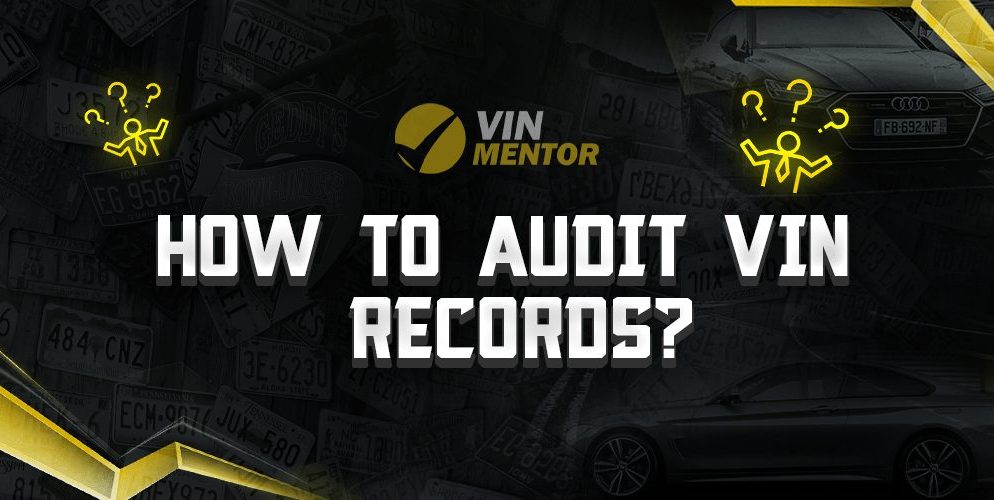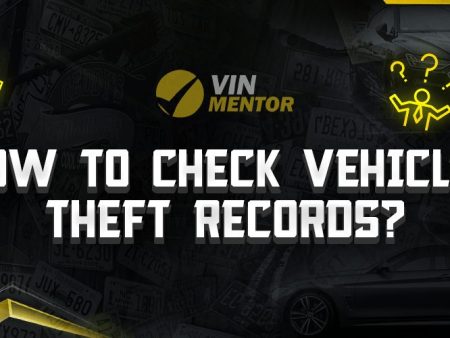

Vehicle Identification Number (VIN) is a unique code assigned to each vehicle. It contains important information about the vehicle’s make, model, year, and country of origin. VIN records are essential for car dealers, insurance companies, and law enforcement agencies. However, not all VIN records are accurate, and it is important to audit them regularly. In this article, we will discuss how to audit VIN records and ensure their accuracy.
Key Takeaways:
- Auditing VIN records is essential for car dealers, insurance companies, and law enforcement agencies.
- Not all VIN records are accurate, and it is important to audit them regularly.
- VIN records contain important information about the vehicle’s make, model, year, and country of origin.
- Auditing VIN records involves verifying the information contained in the VIN against the vehicle’s physical attributes.
- Auditing VIN records can help prevent fraud and ensure customer satisfaction.
What are the steps to perform an audit on VIN records?
- Verify the VIN: The first step in auditing VIN records is to verify the VIN itself. The VIN should be located on the vehicle’s dashboard, door jamb, or engine block. Check to make sure the VIN on the vehicle matches the VIN on the title and registration documents. If there is a discrepancy, it could indicate that the vehicle has been stolen or has a history of fraud.
- Check the make and model: The next step is to check the make and model of the vehicle. The make and model should match the VIN record. If they do not match, it could indicate that the vehicle has been tampered with or has a history of fraud.
- Check the year: The year of the vehicle should also match the VIN record. Check to make sure that the year of the vehicle matches the year indicated on the title and registration documents. If there is a discrepancy, it could indicate that the vehicle has been tampered with or has a history of fraud.
- Check the country of origin: The country of origin should also match the VIN record. The first three digits of the VIN indicate the country of origin. Check to make sure that the country of origin matches the country indicated on the title and registration documents. If there is a discrepancy, it could indicate that the vehicle has been tampered with or has a history of fraud.
- Verify the physical attributes: Finally, verify the physical attributes of the vehicle. This includes the color, body type, and engine type. Check to make sure that the physical attributes match the VIN record. If there is a discrepancy, it could indicate that the vehicle has been tampered with or has a history of fraud.
Auditing VIN records is essential for preventing fraud and ensuring customer satisfaction. By verifying the information contained in the VIN against the vehicle’s physical attributes, you can identify discrepancies and potential issues. If you are a car dealer or insurance company, auditing VIN records can help you make informed decisions about the vehicles you buy or insure. If you are a law enforcement agency, auditing VIN records can help you identify stolen vehicles and track down criminals.
Conclusion
In conclusion, auditing VIN records is an important process that should be done regularly. It involves verifying the VIN, make and model, year, country of origin, and physical attributes of the vehicle. By doing so, you can ensure the accuracy of the VIN record and prevent fraud. To audit your VIN records, you can choose from our list of recommended VIN Check Websites. And if you are unsure how to audit VIN records, seek the help of a professional. With their expertise, you can be sure that your VIN records are accurate and up-to-date.
FAQ
Why is it important to audit VIN records?
Auditing VIN records is important because not all VIN records are accurate, and discrepancies can indicate potential fraud or tampering with a vehicle’s history. By auditing VIN records, car dealers, insurance companies, and law enforcement agencies can ensure the accuracy of the information they rely on to make informed decisions.
How often should VIN records be audited?
The frequency of VIN record audits can vary depending on the industry and the specific circumstances. For example, car dealers may choose to audit VIN records before purchasing or selling a vehicle, while law enforcement agencies may audit VIN records more frequently to identify stolen vehicles. Generally, it’s a good practice to audit VIN records regularly to ensure their accuracy.
Can I audit VIN records myself?
While it is possible to audit VIN records yourself, it may be more effective to seek the help of a professional, especially if you are not familiar with the process. There are also VIN check websites that can provide you with a report on a vehicle’s history, which can be helpful for auditing VIN records.
What should I do if I find discrepancies in a vehicle’s VIN record?
If you find discrepancies in a vehicle’s VIN record, it’s important to investigate further to determine the cause of the discrepancies. Depending on the circumstances, you may need to contact the seller or previous owner of the vehicle, or report the discrepancies to law enforcement.
What are some common types of fraud that can be identified through VIN record audits?
Some common types of fraud that can be identified through VIN record audits include VIN cloning, where a thief alters a vehicle’s VIN to make it appear legitimate, and title washing, where a vehicle with a history of damage or salvage is given a new title in a different state to hide its past. By auditing VIN records, you can help prevent these types of fraud and protect yourself from potential losses.












